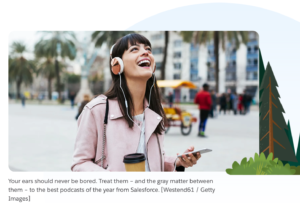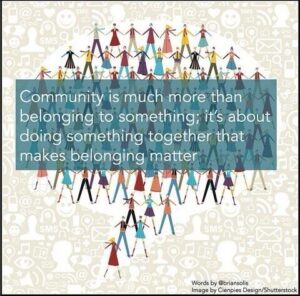
Influence: The capacity to have an effect on the character, development, or behavior of someone or something, or the effect itself.
Digital influence is a controversial topic. At the heart of the matter is this idea of influence and it raises questions and doubts as to whether or not the ability to cause effect or change behavior is truly measurable. Regardless of the answer, we are introduced to a new reality of social networking, an era where our actions and words in Facebook, Twitter et al. are used for and against us.
One day we awoke to find a number attached to our digital persona. And in this new awakening is a fascinating new twist in social media, the association between scores and avatars and the new digital socioeconomic factors that are introduced. We are now ranked and what was once a peer-to-peer network is now tiered, creating a social hierarchy where a score defines your place within it.
We didn’t opt in, we can’t opt out, but we can shape it.
Welcome to the EGOsystem.
If we look beyond the word influence, we see that the ability to measure effect is complicated and elusive. I believe however, that we’re closer to measuring social capital, at least in a digital sense, than we are measuring outcomes. Presenting scores that reflect a semblance of influence creates a society of “haves and have nots.” Social capital to the contrary is aspirational. We’re inspired to invest in a healthier, vibrant, and useful egosystem.
Harvard political scientist Robert D. Putnam describes social capital as “collective value of all ‘social networks’ and the inclinations that arise from these networks to do things for each other.” As a result, he believes social capital can be “measured by the amount of trust and reciprocity in a community or between individuals.”
I was recently asked by my friends at Klout to share my thoughts on how individuals (and brands) can invest in the social capital carried by their digital personae. To be honest, I don’t offer tips and tricks to boost your score. Instead I offered tangible advice to think about the tenets of community such as trust, reciprocity, and recognition to guide transactions, investments, and withdrawals of capital in the new social economy.
Following is my very honest discussion with Klout…
Klout: We often get asked, “What can I do to get a higher Klout Score?”. We can provide some guidance, but the real experts on the subject are the influencers themselves. Today, we’re starting the first of a new series of posts at Klout spotlighting Klout Stars and asking them their secrets to success.
1. What’s your strategy for the content you produce and share on social media?
I’m not sure that my engagement in social media was driven by strategy. In all honesty, my view of engagement was and still is about intention and goodwill. While many believe that the pillars of social media are solidified through authenticity and transparency, the true promise and purpose of living in public is the ability to learn in real-time, the impact we can have on anything we set out to accomplish.
These include:
– Causes
– Social good
– Communities
– Personal brands
– Revolutions
– Change
Social media is our chance to do something that’s bigger than us and that’s what motivates me.
I believe if Social Media warranted a mantra, it would sound something like this, ‘Always pay it forward and never forget to pay it back…it’s how you got here and it defines where you’re going.’
It’s about the investment you make in the creation or curation of relevant and useful content. It’s about the power and unsaid significance behind a retweet on Twitter, a ‘like’ on Facebook, the friending or following of someone to extend a social graph. It’s also expressed through the explicit act of commenting on posts and updates, engaging in online conversation, sharing the contributions of others as well as linking. These acts serve as the currency of social media and the exchange of this currency is indexed today by services such as Klout. The net result is the reflection of your social capital as cast by your digital persona.
2. What advice do you have for someone who wants to take their social media influence and presence to the next level?
There is a balance required to engage, contributing as much or more value than you withdraw from each interaction.The Social Web is powered not by self-promotion, but by the value of the community and the selfless act of recognizing, showcasing, and connecting the great people, content, and causes around us. And with it comes great purpose. If the currency of social media is action, then the value of social capital is measured in influence. Influence is not measured by a score, but instead by the culmination of resulting actions. Focusing efforts on solely driving actions is counter productive. As such, focusing efforts to boost scores is as shallow as it is restricted. If you invest in the value of the community and seek to improve the experiences of those to whom you’re connected, your influence and presence is in turn symbolic of something that escapes a number. Your investment then pays off in the form of self actualization, reaching higher potential without any attachment to success or reward.
This is your time to define the ‘me’ in social media and invest in the people who define the networks to learn, grow, and teach to increase the value of the community overall and your place within it.
Remember who you are…build bridges between aspiration and realization.
Connect with Brian Solis on Twitter, LinkedIn, Facebook
![]()
___
The New ENGAGE!: If you’re looking to FIND answers in social media and not short cuts, consider Engage!: Choose from the Deluxe or Paperback edition

___
Get The Conversation Prism:

___
Image Credit: Shutterstock






Brian, one thing I’ve noticed over the last several years is that in social media it really is about wanting something—whether it’s to be popular, to make someone buy what you’re selling, to have a voice. What you are suggesting—and this runs counter to every instinct in this space—is to be altruistic. In my view, it’s absolutely the right message. Thank you for banging that drum.
Steven, this is something we must do together. Get a drumstick…let’s go.
Believe me, I’m banging away. I’ve got the callouses to prove it. 🙂
Build bridges between aspiration and realization.” I like that a lot. Cheer!
Cheers Thomas
I already tweeted the results of this interview as it was posted to the Klout page, but I wanted to let you know I enjoyed it. As a guy who loves the “Pay it Forward” and Judo’s “Mutual Welfare and Benefit”, I sincerely appreciated the content of this entire interview.
And I appreciate you sharing…
Klout is to the social web what page rank is to the World Wide Web. It’s a barometer by which we measure social media popularity. The core of social media is social networking, and social networking should culminate in actual networking. Since Klout does not measure a Tweeter’s offline social interactions, it is limited.
The key to a solid social media foundation is not to follow the latest fad or the person with the largest following. The key to a solid social media foundation is to follow a set of social media principles. Every interaction should be personal, relevant, and conversational. Sometimes that comes in the form of a retweet, other times it means getting into a micro-conversation, and other times it means getting out of the office and shaking hands.
All in all, in this new social economy, the true measurement of social capital is commerce (online and offline). Those who interact with their Twitter followers and Facebook friends at various conventions, speaking engagements, and other places are those who understand the role commerce plays in social capital. They are the ones who understand that just as it is important to invest one’s financial capital strategically, it is important to invest one’s social capital strategically. They are and will continue to be the influencers and innovators of the social Web.
Erick
I can totally see how Klout could eventually become the PageRank for the social web. In the end, however, SEO is all about content and keywords. No matter how much you try to ‘game the system’ the algorithms are ultimately going to be tuned to favor the best and most relevant content. Eventually, the SPAM gets identified and filtered out of the results.
Similarly, my hope is that Klout’s algorithms will mature to reflect deeper, more meaningful metrics like benevolence and intention and some of the more subtle qualities that Brian writes about. The rankings will evolve to truly measure our social karma, rather than simply our performance as dictated by mentions and retweets.
Erick, this is powerful. It is about investing in engagement in all forums including the real world.
Hi Brian – this is a very wise and well-balanced posting about the hype that goes on, and frustrates a number of people also … – about ´social media popularity´ – thanx for your contribution – enjoy, Dann Sommer
Thank you Dann. Popularity has clearly blinded the judgement of many.
Absolutely well said, Brian. Numbers are helpful but when they become the defining element in your persona, something is off-kilter.
Brian, I almost swept past this, but “don’t think about the score” caught my eye. Excellent presentation! I absolutely agree in principle, and I hope to help build bridges in practice.
Wonderful. I’ll meet you on one of the bridges.
Social Influence is a fleeting thing and one we’ve been talking a lot about in my circles. None of us have answers yet, but questions are being uncovered that will helps us as measurement and application matures.
I’d love your input on any of these Brian:
How does social influence change your personal and professional life? Does contextual influence carry more weight than overall influence? If systems like Klout apply game theory to personal ego and pride… will the masses play if the rules aren’t defined? This is fascinating stuff from a sociology perspective.
Thanks, Brian. Great post, great insight. You’ve highlighted the core communication skill of setting out to help and add value to people. I love it. Your blog is an excellent resource.
Thought it was interesting to apply Putnam’s social capital — I havent kept up on Putnam’s thoughts on internet engagement though. Originally, I believe he thought social interaction online wasnt going to result in a positive return. Glad to say he should be pleasantly surprised. The online to offline has resulted in a positive upturn in social interactins. I also liked the list of social media actions re: ” the impact we can have on anything we set out to accomplish”.
I never got bothered of how many followed me, rather I get interested on how many share my vision, and with how many I have common feelings and thoughts.
I don’t market myself, but I market what I think is to be known so that people open up their eyes and minds, and start using their brains for the common good of mankind and nature.
The base principles of this article is no news to me, but I must admit it, it is well written. Thanks pal!
Your response to Klouts first question says it all for me as well. Thank you for setting a great example of what we should all be to each other.
Rosie
Thank you for reading and also for the comment. Lead the way…
Hit the nail on your head. I’m sick of hearing about ROI and Klout scores when social media is about brands being real. You know which ones are getting the best scores? The ones who are in it for engagement.
Michael, very well said.
Do we really care what a score is? What I care about is helping people and moving the conversation and thinking forward. Who knows where that will lead? Were any great thinkers or leaders ever measuring their impact along the way ? Hardly – because most leadership or contributions to a cause have little to do with a near-term benefit. It is an investment in a community for the benefit of all.
Exactly
While I certainly can strengthen my links between aspiration and realisation, I wonder about what figures like these show.
In other words, how influential is influential and what does it really mean? According to Klout Lady Gaga has 92, Charlie Sheen has 91 and Brian Solis 80. What does these figures show? Not wanting to flatter, personally I have a lot more regard for Brian Solis than both Lady Gaga and Charlie Sheen, yet according to Klout they both surpass Brian in influence. But influence in what? What can I achieve by knowing this?
As someone whom often gets requests from various eager C-suites “to get into FT” for reasons known and understood only by the suit in question, I’d like to ask this group the same question that I ask my cherished suits – isn’t better to identify whom really matters in the relevant industry and reach out to them instead?
And BTW, FT 73 – The Economist 86, yet FT is considered a lot “sexier.”
While I certainly can strengthen my links between aspiration and realisation, I wonder about what figures like these show.
In other words, how influential is influential and what does it really mean? According to Klout Lady Gaga has 92, Charlie Sheen has 91 and Brian Solis 80. What does these figures show? Not wanting to flatter, personally I have a lot more regard for Brian Solis than both Lady Gaga and Charlie Sheen, yet according to Klout they both surpass Brian in influence. But influence in what? What can I achieve by knowing this?
As someone whom often gets requests from various eager C-suites “to get into FT” for reasons known and understood only by the suit in question, I’d like to ask this group the same question that I ask my cherished suits – isn’t better to identify whom really matters in the relevant industry and reach out to them instead?
And BTW, FT 73 – The Economist 86, yet FT is considered a lot “sexier.”
I am glad to have this confirmation that you really can become a success and make a difference in proportion to how hard you work to build others and help them to find success. I am enjoying your book, “Engage.”
Thank you Robin…and thank you for reading Engage. The future is yours to define…
Hey Brian,
I love this post! People should focus on real engagement and reciprocity instead of the score and they’ll soon see these actions reflected in a higher score. I will be sharing this with everyone who asks us how to raise their score! 🙂
-Megan
@meganberry
Influencer Marketing Manager, Klout
Absolutely and completely agree! No matter how much our businesses and lives are influenced by social media, the bottom line still comes down to personal interaction. Real engagement and reciprocity… Exactly.
Fantastic insight, as always Brian. Unfortunately the driver behind the numbers is not just our individual egos and the need to know where we “rank” among our peers. The boom in corporate and commercial engagement (and spending) requires a way to measure ROI, so we are forced to come up with metrics to satisfy those who control corporate budgets. How do you convince managers that the investment in social media engagement is “worth it?” You can’t “prove” it without a scorecard of some kind that demonstrates improvement in whatever criteria is important to that organization. I’m afraid this need to justify corporate spending will require that we continue to develop new and better tools to gauge social influence and engagement. You are right – we didn’t opt in, we can’t opt out, but we can shape it.
I love your social media mantra – I’ve written it on the white board behind my desk. Pay it forward. You do that extremely well. Thanks for your leadership – keep up the great work.
On point Brian!
Thanks.
Commitment, communication, willingness to give something more than just ‘information about our products’ will help to build the bridges between our companies and potential clients. I think that Social Media is more than just a platform to communicate, it’s opportunity to share, give, receive.
Klout gives people the false impression that they are more important than they really are. Social media isn’t about how many times you can get retweets and it isn’t about how many followers you have. Socia media is about connecting people together so they can engage, collaborate, and make an impact.
Klout is all about who YOU are as an individual, and most social media pros will tell you that social media isn’t about YOU. Somforget they score, focus on creating/sharing useful information and connecting with others.
My $.02….
–Sean
I think social media is like to provide everything whether its your niche updates or other world news. you just need to engage your users with you. having fun. be outspoken.
People normally like to stay on social websites because they are getting news world wide or everything they want.
Well said Brian — I’d rather have 1,000 very engaged followers (who then purchase my stuff) than 100,000 followers who don’t interact but get my “scores” up.
Cheers David.
I don’t like this score hype. There are thousand of postmans, retweeting without adding any comment, yes, they get thousands of followers and have a high Klout score. But what’s their value?